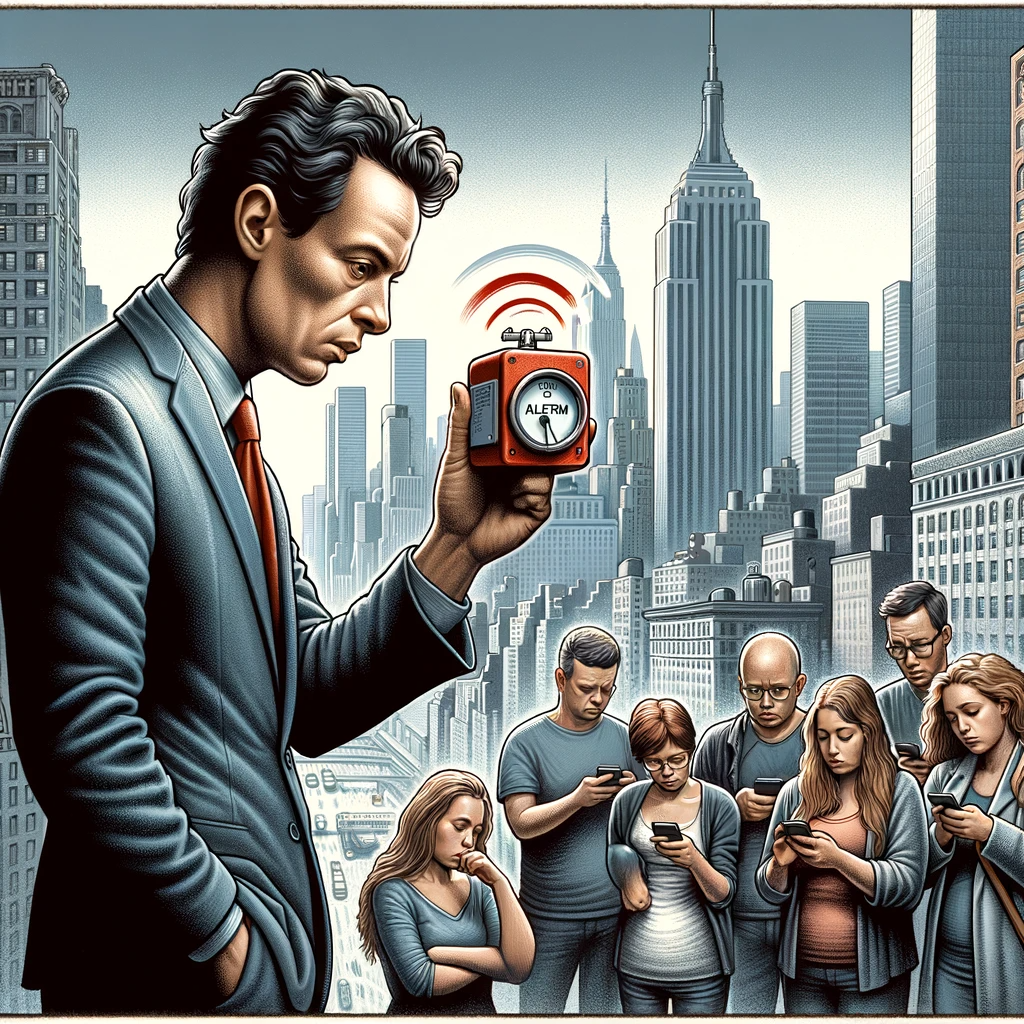Why New York Sounds the Alarm
On May 3rd, 2023, United States Surgeon General, Dr. Vivek Murthy, released a new Surgeon General Advisory calling attention to the public health crisis of loneliness, isolation, and lack of connection in our country. Even before the onset of the COVID-19 pandemic, approximately half of U.S. adults reported experiencing measurable levels of loneliness. Now, as we move into 2024, only a few weeks into the New Year, New York sounds the alarm. New York City is issuing a health advisory about social media due to its impact on children and teens. The city is designating social media an ‘environmental health toxin.’
The impact of social media on our daily lives has become increasingly evident. While it has undoubtedly revolutionized communication and connectivity, concerns have risen regarding its potential negative effects on mental health and overall well-being.
This leaves me to wonder, are both the loneliness epidemic and the social media health toxin alerts linked? How can we, as a society, facilitate change for a safer and less lonely environment? This post aims to present facts and statistics supporting the designation of social media as a ‘public health hazard’ in New York City.


Too Much Usage and Over-Reliance on Social Media
According to a survey conducted by the Pew Research Center, approximately 72% of adults in the United States use some form of social media. In New York City alone, this translates to millions of individuals actively engaging with various platforms on a daily basis, which is why New York sounds the alarm on social media.
I have heard a lot of friends tell me they learned new things on social media, like a cooking skill, a new language, or even how to fix something on their cars. Social media platforms can be used for good; however, spending hours on useless information and videos with no substance may lead to brainwashing and feeling depressed.
Mental Health Implications
Numerous studies have highlighted the association between excessive social media use and mental health issues. A study published in the Journal of Social and Clinical Psychology found that increased time spent on social media platforms is linked to higher levels of anxiety, depression, loneliness, and poor sleep quality.
Cyberbullying and Online Harassment
Social media platforms have unfortunately become breeding grounds for cyberbullying and online harassment. A report by the Cyberbullying Research Center revealed that 34% of students in the United States have experienced cyberbullying at some point in their lives. The anonymity and ease of spreading harmful content on social media exacerbate these issues.
Addiction and Time Consumption
Social media platforms are designed to be addictive, employing various techniques to keep users engaged for extended periods. A study published in the Journal of Behavioral Addictions found that excessive social media use can lead to symptoms resembling substance addiction, including withdrawal, cravings, and neglect of other important activities.
I recently saw an ad about a company offering people $100,000 to give up their smartphones for one month. In reality, it seems like a no-brainer. $100,000 to not use my phone for 30 days is easy enough, but is it? Then, the anxiety starts to creep in, and I start breathing a little funny, a bit like an alcoholic who needs one more drink. My work and social life are connected to my phone. What if my friends and family forget I exist? How will I connect? How will I start and end my day? Everything is on my phone, and to be honest, most of us feel the same way. This seems unhealthy. How would we survive if the cell phone grid went down?


NY Sounds the Alarm: Impact on Physical Health
The sedentary nature of social media usage contributes to a more sedentary lifestyle, which can lead to various physical health problems. Studies have shown that excessive screen time is associated with increased risks of obesity, cardiovascular diseases, and musculoskeletal issues. Does this mean that staring at a screen for too long can decrease our vision?
Impact on Productivity and Academic Performance
Social media can significantly impact productivity and academic performance. A study conducted by researchers at the University of California, Irvine, found that even brief interruptions caused by social media notifications can lead to a decrease in productivity and an increase in errors. I even see this in my own daily work. I try to get a task done, but my phone keeps going off. Bing Bing Bing, loading me with more information, sending me more texts, e-mails, and ads. This information overload makes my head spin, and then I forget what I was even doing beforehand.
Parental Guidance and Responsibility
It is essential to recognize that parents play a significant role in guiding their children’s social media usage. Educating parents about the potential risks and benefits of social media can empower them to make informed decisions. Encouraging open communication and setting appropriate boundaries can help mitigate any negative effects. It is important to remember that their alternatives for children to utilize other than technology, like an old-fashioned, hard cover book.
Digital Literacy and Online Safety
Likewise, children should be educated about online safety. Rather than solely blaming social media platforms, it is crucial to focus on promoting digital literacy and online safety. Teaching children about responsible online behavior, critical thinking, and media literacy can empower them to navigate the digital landscape more effectively. By equipping them with the necessary skills, we can help children make informed choices and protect themselves online. Ask your children questions and debunk misinformation to help them research the things that may have come up that they are curious about, upset about, or passionate about. Instead of hiding the cruel world, open up dialogue, communicate and talk about your family’s values. Sometimes, we have to do this. It’s uncomfortable, but it creates a safe space for children to talk at home and not be judged by their peers or influences.
Conclusion
As New York sounds the alarm on social media, it is important to recognize that these issues are multifaceted. Factors such as peer pressure, societal expectations, and personal circumstances also play a significant role in addressing mental health. It is crucial to acknowledge the concerns raised, it is equally important to approach this issue with an open perspective. Blaming social media entirely for the challenges we are now facing as consequences this may oversimplify more complex factors at play.


